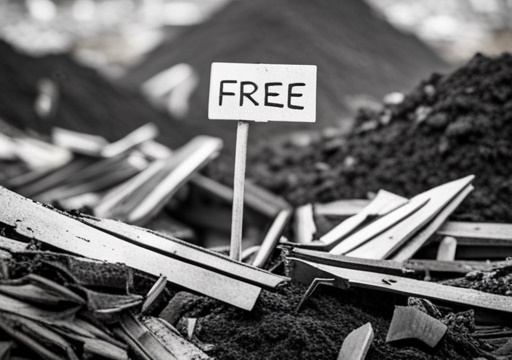Compost, often called “black gold” by gardening enthusiasts, is an organic matter that has been decomposed and recycled as a fertilizer and soil amendment. Compost results from a natural process (the great “circle of life”) where organic matter is broken down and then added back into the soil. You can compost at home, but often not in the volumes you need for a larger garden. You can buy compost in most garden supply stores, but sometimes you can get free compost, which is much better! Let’s look at some ideas to get free compost near you (note that not all of these will be available in all areas).
Where to Find Free Compost
- Local Composting Programs: Many municipalities have composting programs where organic waste is collected from residents and composted on a large scale. This compost is often made available to residents free of charge or at a nominal price. This is available in a number of areas. For example, you can get free compost in places like New York City, Portland, Oregon, Chicago, and many others. Often the easiest way to see if free compost is available in your area is to Google “free compost” and the name of your town or city. Often these programs are only available to residents, so check before going to another municipality.
- Community Gardens: These spaces often seek ways to dispose of the compost they generate. Reach out to community gardens in your area and see if they can provide you with compost.
- Farms & Stables: Farms and horse stables often have large quantities of manure and other organic matter that they compost. They may be willing to share or sell this compost at a low cost.
- Online Platforms: Check websites like Craigslist, Freecycle, Facebook marketplaces, and similar platforms. Individuals or companies often give away compost for free or a small fee.
- Start Your Own Compost Pile: This is the most direct and rewarding way to get free compost. It requires a small investment of time and effort, but the result is high-quality compost that’s ready whenever you need it. Here are some tips to get started on your own compost pile.
How to Get Free Compost
Once you’ve identified a potential source, getting the compost can be a straightforward process. Depending on your desire, you may need a truck (or a friend’s truck is even better!) Often, these are going to be do-it-yourself endeavors.
- Transportation: If you’re sourcing compost from a local program or farm, be prepared to transport it yourself. You may need a truck or a trailer, or at least some sturdy bags and a willingness to get a bit dirty.
- Verification: Knowing what’s in your compost is important, so don’t be afraid to ask questions. You’ll want to ensure the compost is fully decomposed and free of harmful substances.
- Equipment: Shovels, rakes, and wheelbarrows will be useful for loading and spreading compost.

Pros and Cons of Free Compost
Now that we’ve talked about the hows, let’s look at what you’re getting and a few things that you may want to know in advance.
Pros
- Cost-Effective: One of the most apparent benefits of sourcing free compost is cost savings. This is particularly beneficial for those with large gardens or farms or if you don’t have the space to compost yourself.
- Environmentally Friendly: By composting, you’re playing a part in reducing the amount of waste that goes to the landfill. It’s a sustainable way to recycle organic materials.
(See also Benefits of Composting)
- Improved Soil Health: Compost improves soil structure, provides essential nutrients to your plants, and promotes microbial activity, which aids in the growth and health of your plants. Additionally, composting can help with water retention and reduce the amount of fertilizer you need.
Cons
Of course, not everything is perfect. Most of the downsides of free compost are minor, but let’s take a look at the cons of free compost.
- Quality Control: The quality of free compost can be inconsistent, and it may contain substances that you’d rather keep out of your garden. Always verify the compost source and its components.
- Time and Effort: While compost is free, obtaining it requires time and energy. Transporting compost can be labor-intensive, and maintaining a home compost pile requires effort.
- Potential Pathogens: If not properly managed, compost can harbor plant diseases, weed seeds, and pests. Ensure the compost was heated adequately during production to kill off these potential issues.
The benefits of compost are undeniable, and sourcing it for free can provide some great advantages. While it requires time and resources, the returns regarding environmental impact and soil health are immeasurable. Happy composting!
